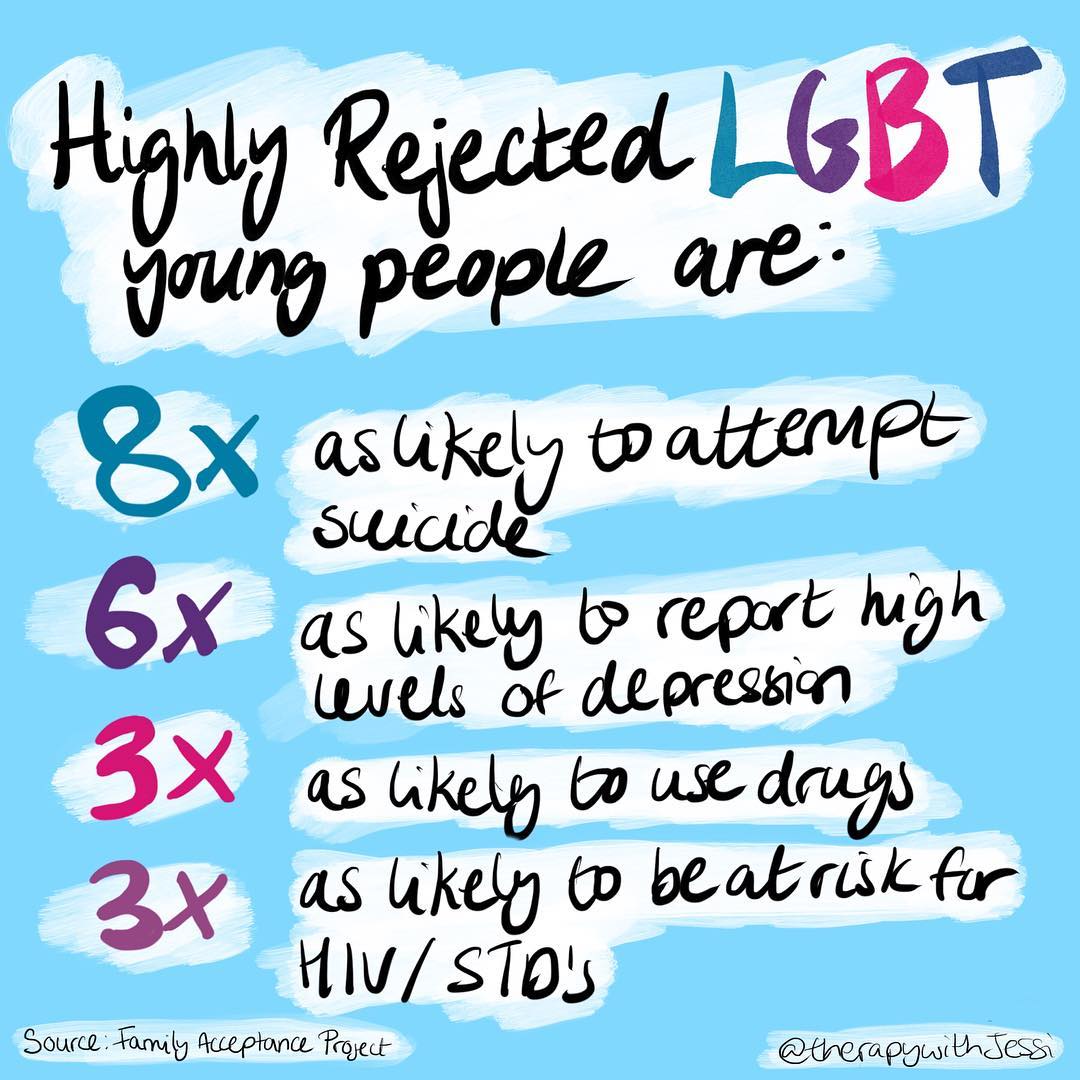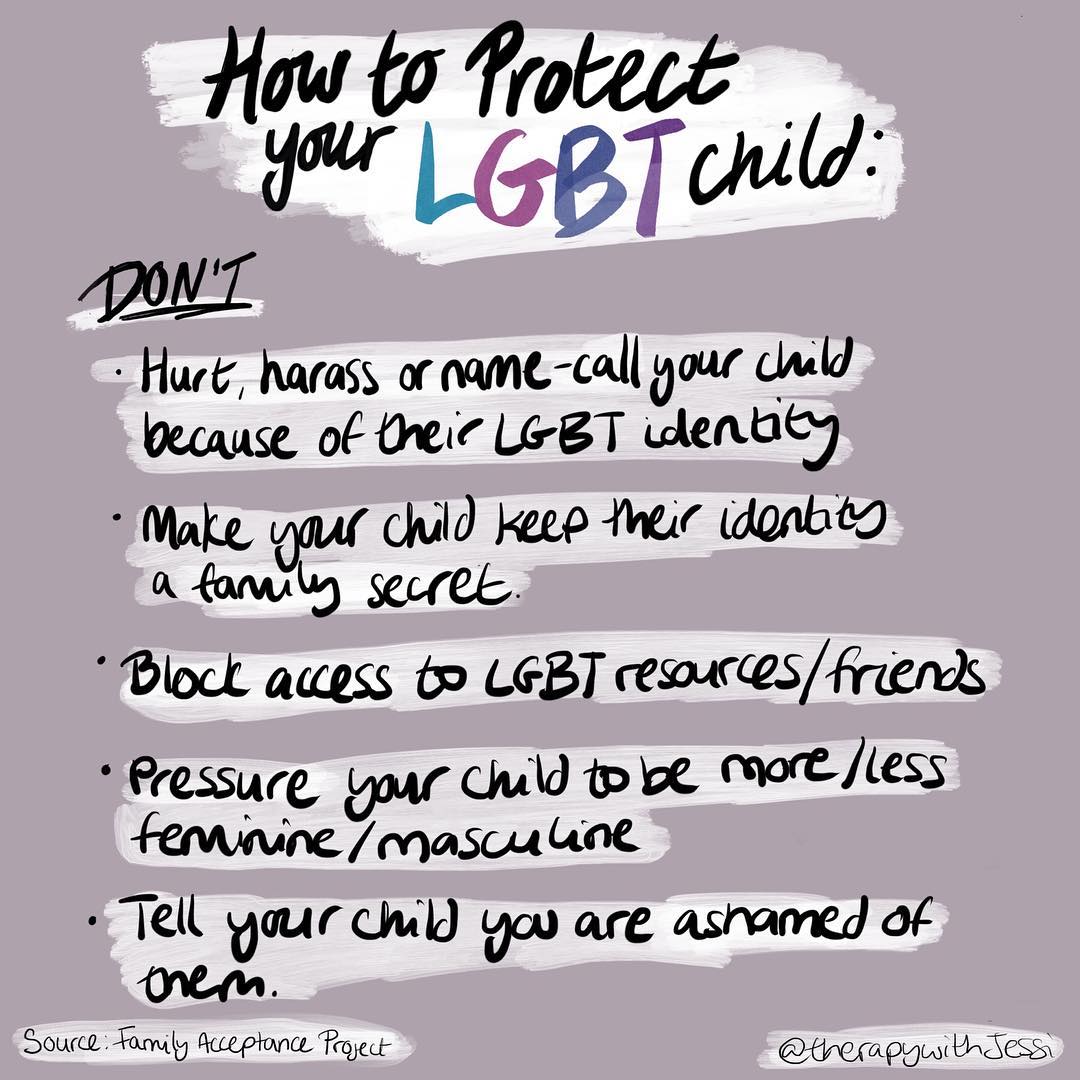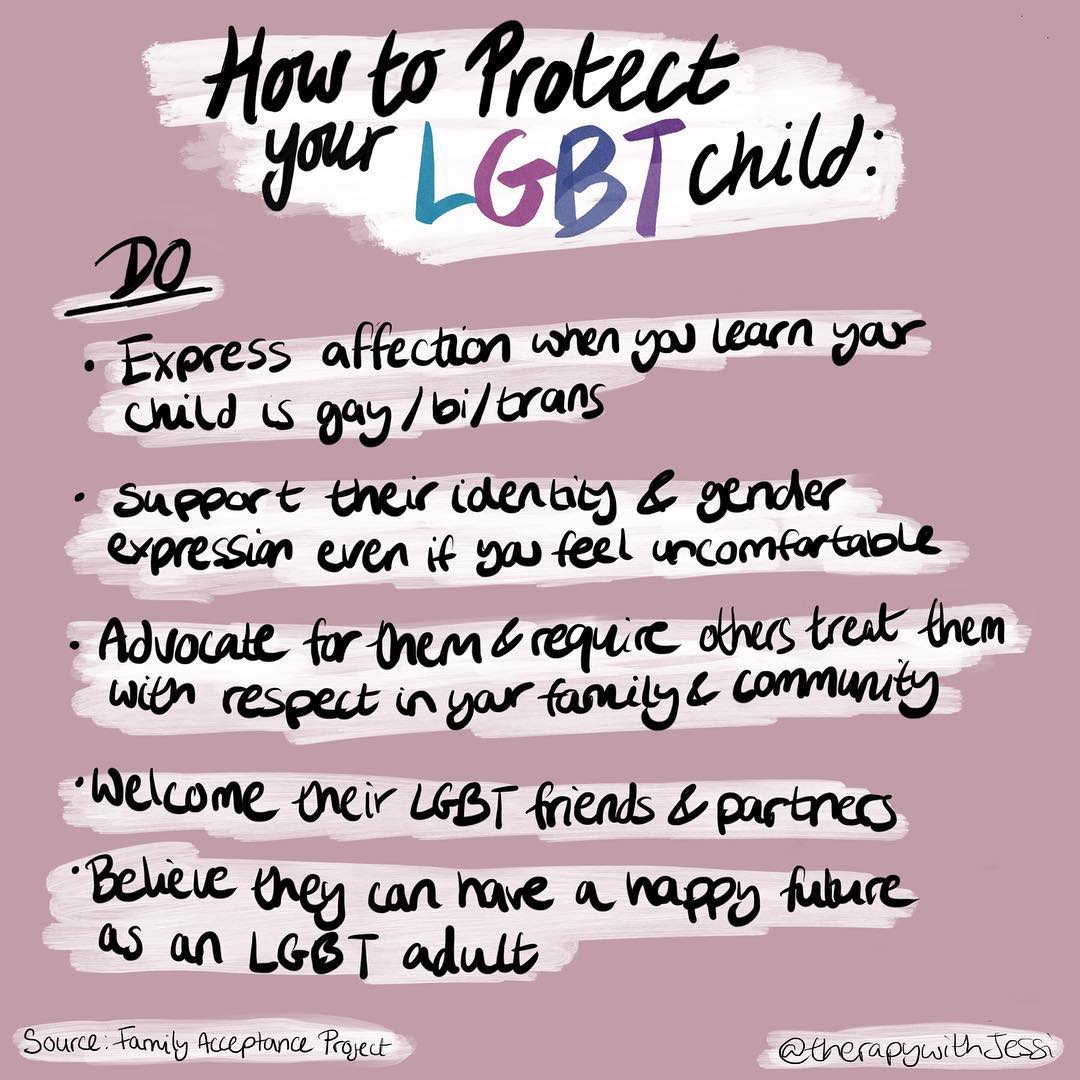Acceptance Matters: LGBTQ Youth and The Cost of Family Rejection
“Being able to feel safe with other people defines mental health; safe connections are fundamental to meaningful and satisfying lives.” - Dr. Bessel van der Kolk
Feeling safe in relationships is a basic need and a powerful buffer against stress, discrimination and trauma, which is why family rejection has such a devastating impact on LGBTQ people.
Research by the Family Acceptance Project looked at how the rejecting behaviors families use to respond to their child’s gender or sexual identity contribute to mental health and suicidality risks, while accepting behaviors affect self-esteem, sense of the future, life satisfaction and social support.
Harmful rejecting behaviors include the obvious, such as physical or verbal abuse, and excluding the child from family activities. However, they also include blocking access to LGBT friends and resources or making the child keep their identity a secret in the family.
The researchers found that some of these rejecting behaviors, such as pressuring a child to be more/less feminine, were just as harmful as being physically beaten. The message received was the same: they did not feel loved or accepted, & believed their parents were ashamed of them or hate them.
While some families believe they are protecting their child from harm by trying to change or prevent them from being gay or trans, in actuality, they are putting their children at higher risk.
According to the study, highly rejected young people are:
» 8X as likely to attempt suicide
» 6X as likely to report high levels of depression
» 3X as likely to use illegal drugs
» 3X as likely to be at high risk for HIV and STD’s
Compared with young adults who were not at all or only rejected a little by their parents.
These risks are cut in half when families are even a little less rejecting and a little more accepting.
Simply put: being LGBTQ is not the problem, being rejected by family is.
In contrast, people from supportive families have better overall mental health, and are much less likely to attempt suicide. These young people believe they will have a good life compared to only 1 in 3 young people from families that are not at all accepting.
By demonstrating accepting behaviors, families can truly protect their children’s wellbeing and ensure a happy future.



